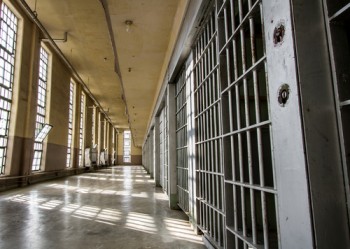Trump signs bipartisan criminal justice reform bill; ABA applauds 'First Step'

Shutterstock.com.
Updated: President Donald Trump has signed a bipartisan criminal reform bill that lowers some federal sentences and aims to reduce recidivism.
Trump signed the bill on Friday, USA Today reports.
The bill represents “the most substantial changes in a generation to the tough-on-crime prison and sentencing laws that ballooned the federal prison population,” according to the New York Times. The Senate passed the bill in an 87-12 vote; the House voted 358 to 36. USA Today, BuzzFeed News, Politico and the Washington Post are among other publications with coverage.
The bill, known as the First Step Act, shortens three-strikes and other federal sentences. It also allows more federal offenders to qualify for “safety valves” in which judges have the authority to bypass mandatory minimum sentences. Another provision allows offenders to apply for retroactive application of a 2010 law that reduces the sentencing disparity between crack and cocaine offenses.
The bill also allows some federal inmates to earn credits toward early supervised release by completing programs to reduce recidivism. Who can cash in these credits will be, in part, determined by a yet-to-be-built algorithm that assesses an inmate’s risk, according to Vox. Those ranked as high risk will be able to earn credits but not use them for early release.
“Our criminal justice system is in urgent need of reform and this bill is an important step towards achieving comprehensive improvements,” said ABA President Bob Carlson in a statement after the bill’s passage. “The ABA is proud to support many of the provisions in the bill, including ones that will ease some mandatory minimum sentences, give federal judges more flexibility to make exceptions to others, and allow inmates to reduce their time in prison through good behavior and vocational training.”
Carlson, who had earlier expressed the ABA’s support of the First Step Act, also touted the following provisions:
• expansion of recidivism-reducing programs;
• compassionate release for the elderly and terminally ill;
• elimination of sentences of life without parole and solitary confinement for juveniles;
• Second Chance Act provisions in the bill to help former inmates re-enter their communities after incarceration.
“Many of these provisions both save money and make our streets safer,” Carlson said. “While we do not support several provisions and omissions in the legislation, ultimately, the First Step Act can achieve positive and necessary improvements to the federal criminal justice system.”
Trump had earlier applauded Congress’ action in a tweet, saying the bill’s passage “is a great bi-partisan achievement for everybody.” After the Senate’s vote on Tuesday he tweeted that the law’s changes will “provide hope and a second chance to those who earn it.” Trump’s son-in-law, Jared Kushner, had worked to get a compromise bill that would win the support of his father-in-law.
Trump also signed the Juvenile Justice and Delinquency Prevention Reauthorization Act on Friday, according to a White House tweet and a press release. The bill requires states receiving federal funding generally to keep youths out of adult jails and to limit incarceration for status offenses such as truancy and curfew violations. It also supports alternatives to incarceration and improves treatment for youths with mental health and substance-abuse issues.
The ABA had supported the bill. In a Dec. 11 letter to congressional leaders, ABA President Bob Carlson said the bill represents “a national commitment to the rehabilitative purpose of the juvenile justice system.”
The ABA had supported additional juvenile justice reforms, but the bill “is a critical step in the right direction,” Carlson said.
Congress just passed the Criminal Justice Reform Bill known as the #FirstStepAct. Congratulations! This is a great bi-partisan achievement for everybody. When both parties work together we can keep our Country safer. A wonderful thing for the U.S.A.!!
— Donald J. Trump (@realDonaldTrump) December 20, 2018
….This will keep our communities safer, and provide hope and a second chance, to those who earn it. In addition to everything else, billions of dollars will be saved. I look forward to signing this into law!
— Donald J. Trump (@realDonaldTrump) December 19, 2018
Updated on Dec. 20 at 1:55 p.m. to reflect the House of Representatives’ passage of the bill, and at 2:23 p.m. to include ABA President Bob Carlson’s statements. Updated on Dec. 21 to report that Trump signed the bill, as well as the Juvenile Justice Reform Act.



